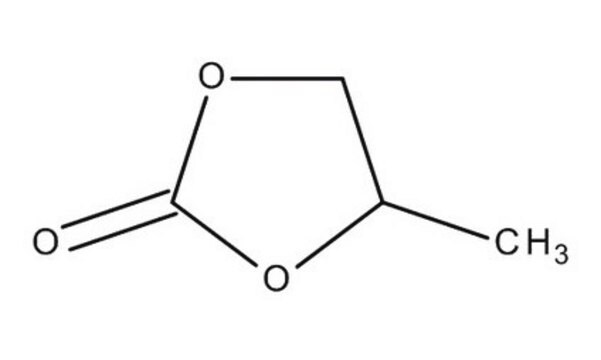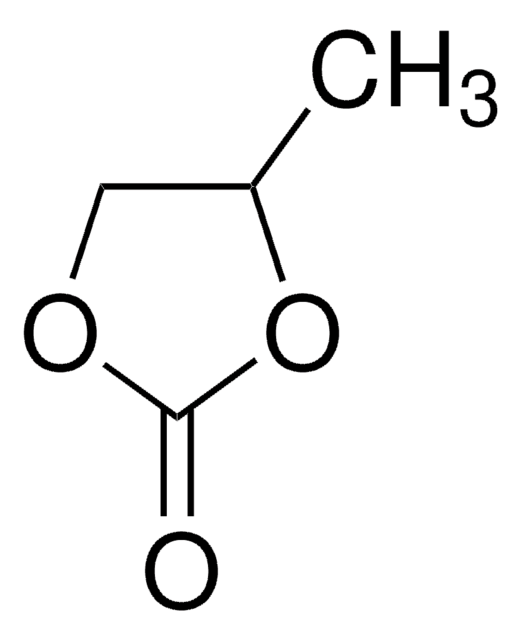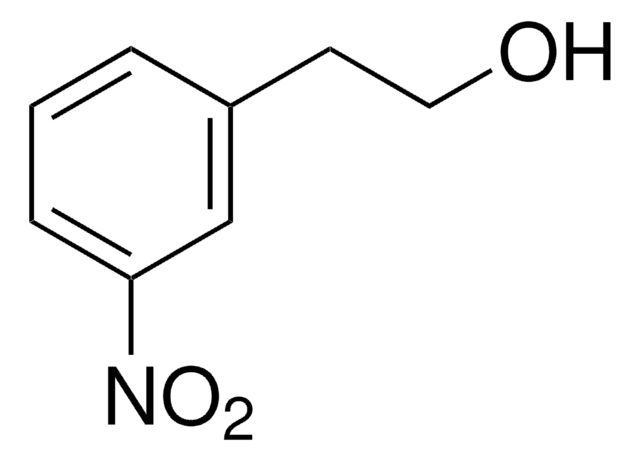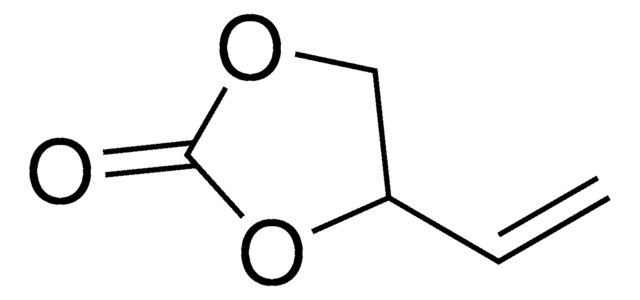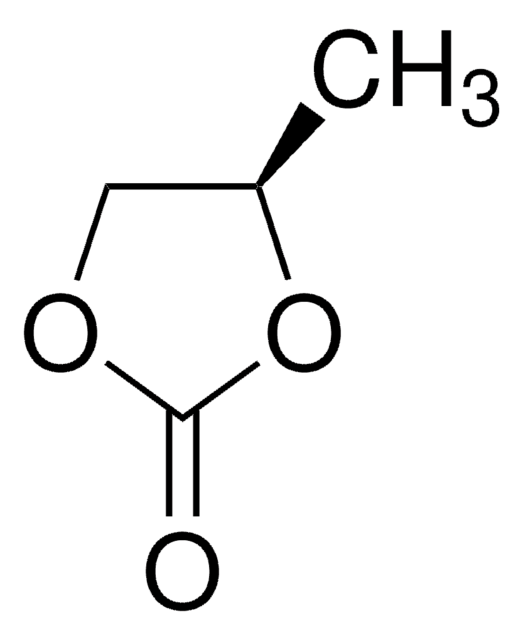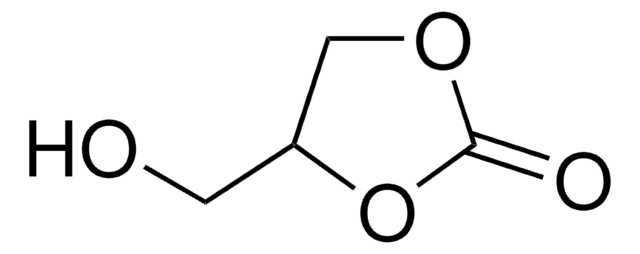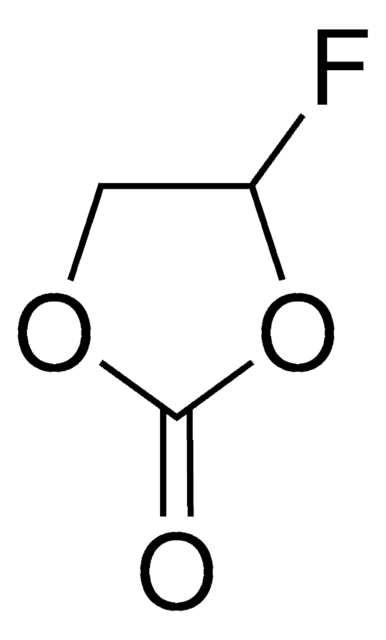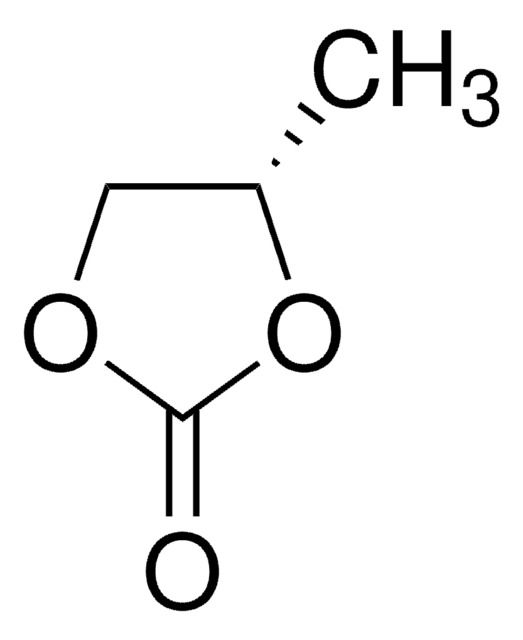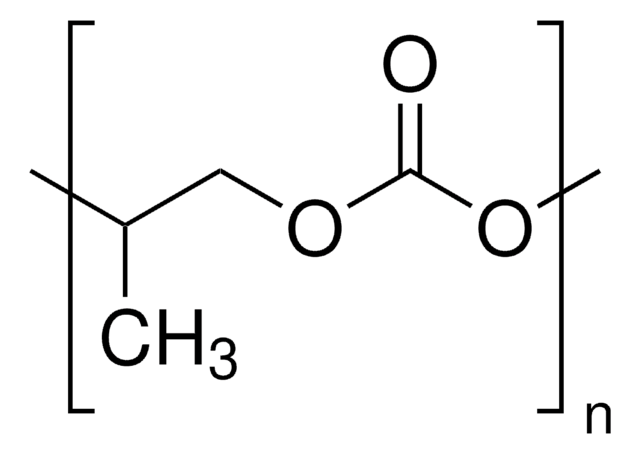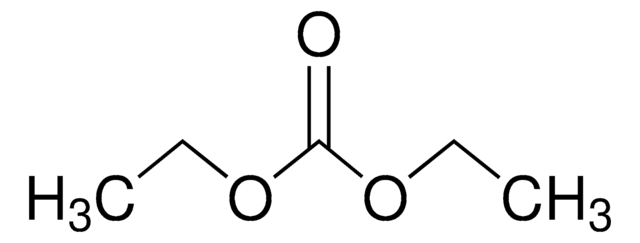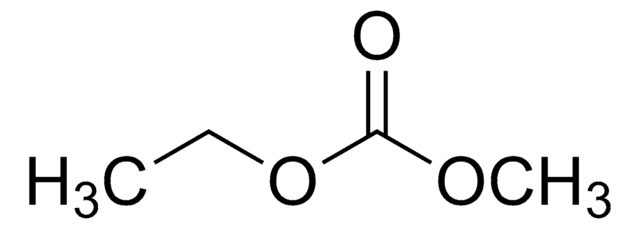310328
Propylene carbonate
anhydrous, 99.7%
Synonym(s):
1,2-Propanediol cyclic carbonate, 4-Methyl-1,3-dioxolan-2-one
About This Item
Recommended Products
grade
anhydrous
Quality Level
vapor pressure
0.13 mmHg ( 20 °C)
0.98 mmHg ( 50 °C)
assay
99.7%
form
liquid
autoignition temp.
851 °F
expl. lim.
14.3 %
impurities
<0.002% water
<0.005% water (100 mL pkg)
refractive index
n20/D 1.421 (lit.)
pH
7 (20 °C, 200 g/L)
bp
240 °C (lit.)
mp
−55 °C (lit.)
density
1.204 g/mL at 25 °C (lit.)
SMILES string
CC1COC(=O)O1
InChI
1S/C4H6O3/c1-3-2-6-4(5)7-3/h3H,2H2,1H3
InChI key
RUOJZAUFBMNUDX-UHFFFAOYSA-N
Looking for similar products? Visit Product Comparison Guide
Related Categories
General description
Application
signalword
Warning
hcodes
Hazard Classifications
Eye Irrit. 2
Storage Class
10 - Combustible liquids
wgk_germany
WGK 1
flash_point_f
269.6 °F - closed cup
flash_point_c
132 °C - closed cup
ppe
Eyeshields, Gloves, type ABEK (EN14387) respirator filter
Choose from one of the most recent versions:
Already Own This Product?
Find documentation for the products that you have recently purchased in the Document Library.
Customers Also Viewed
Articles
Research and development of solid-state lithium fast-ion conductors is crucial because they can be potentially used as solid electrolytes in all-solid-state batteries, which may solve the safety and energy-density related issues of conventional lithium-ion batteries that use liquid (farmable organic) electrolytes.
The critical technical challenges associated with the commercialization of electric vehicle batteries include cost, performance, abuse tolerance, and lifespan.
Our team of scientists has experience in all areas of research including Life Science, Material Science, Chemical Synthesis, Chromatography, Analytical and many others.
Contact Technical Service
